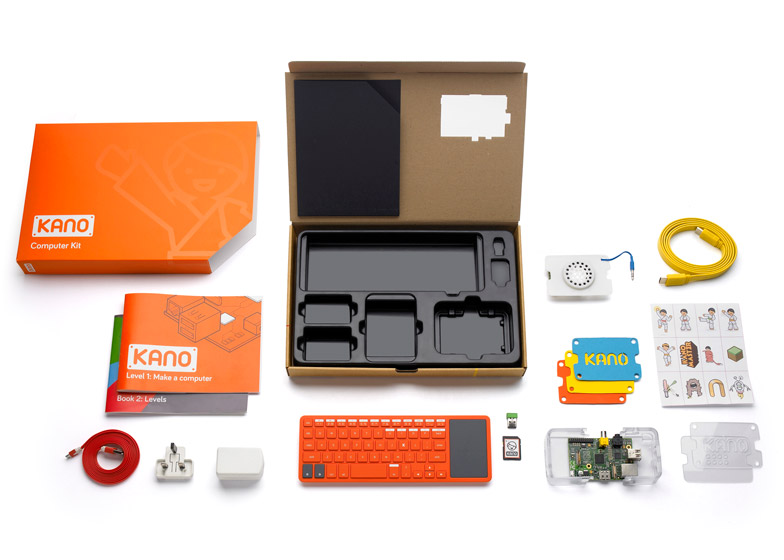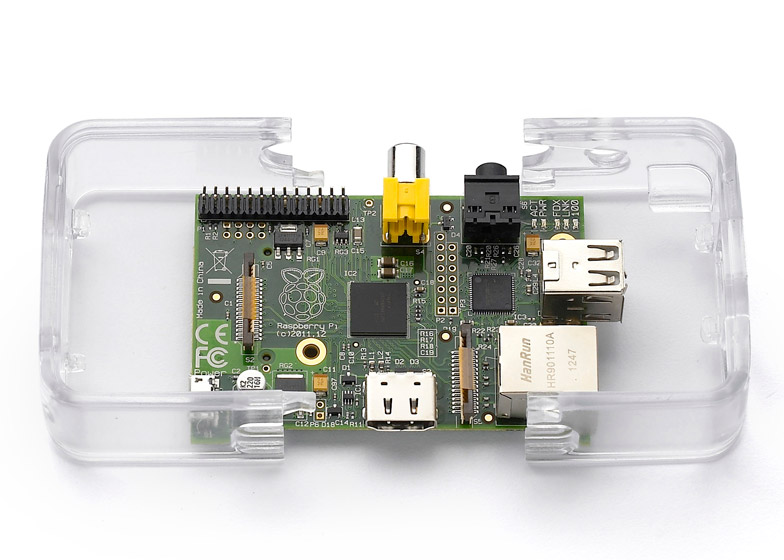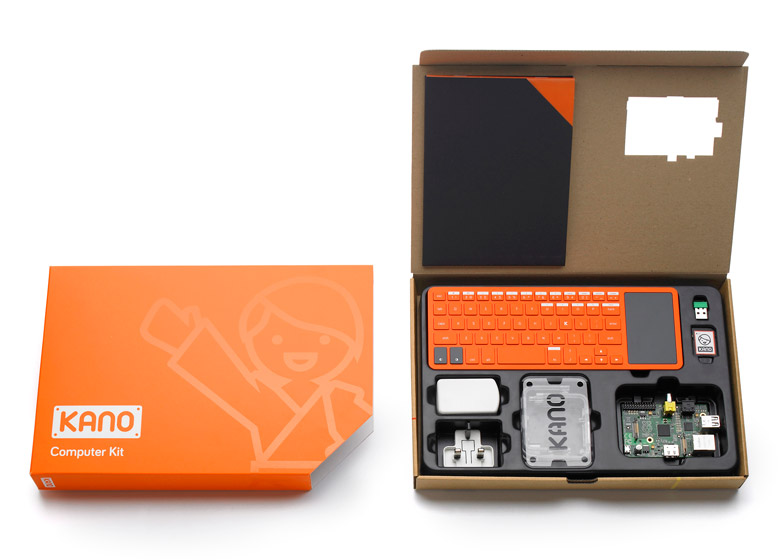Edward Barber and Jay Osgerby's creative consultancy MAP has designed a build-your-own computer kit (+ slideshow).
London studio MAP worked with computer company Kano to create parts for the machine, designed as kit for learning about how computers work.
The kit runs on the Raspberry Pi platform - a customisable single-board computer that allows the user to add components.
MAP created a transparent case for the Raspberry Pi board, comprising two C-shaped transparent shells that clip together to secure the cable connections but leave the top open for the user to experiment with adding additional parts.
"We knew that it was important to protect the Raspberry Pi board and we were frustrated to see that most of the cases on the market actually seal the board in a box," said MAP director Jon Marshall. "Our two-part bumper case provides protection while encouraging Kano users to experiment and make."
A clear cover can be added over the board to protect the components or a speaker and small amplifier powered directly from the Raspberry Pi can be clipped on the top.
The kit comes as a case full of colourful parts with an instruction manual containing assembly details.
It includes a wireless keyboard, the Raspberry Pi with its customisable case, a speaker module, packaging and accessories. These elements can be used with a generic computer screen or monitor.
The parts are packaged in a bright orange box, designed to fit through a standard letterbox for easier delivery and be used to store the kit when not in use. The inner box is printed to show how the coloured wires connect to the Raspberry Pi board.
"We wanted to create the first computer that anyone can make – simple, fun, and powerful," said Kano co-founder and head of product Alex Klein.
A Kickstarter campaign to crowd fund the project has launched today.
Keep reading for more text from MAP:
Creative consultancy MAP and computer company Kano have together created a hands-on computer kit that you can make yourself. Using the well-known Raspberry Pi as its platform, users can learn and have fun while making it.
The prototype is now complete and a Kickstarter campaign will launch on 19 November. The kit costs $99 or £69. You can buy one for yourself or sponsor kits for a student, school, or institution through Kano's not-for-profit programme, Kano Academy.
MAP worked with Kano on designing the kit and all of the components as a complete experience. MAP's design team set out to make the Kano kit as friendly and as fun to use as Lego. The kit includes a new wireless keyboard, Raspberry Pi and a new type of customisable case, a unique speaker module, packaging and accessories.
MAP designed the Kano kit to guide users quickly and intuitively through the set-up. The packaging was designed to be kept and used as storage for the kit and its components, rather than being thrown away. A colourful outer sleeve keeps the kit protected, with the overall size optimised to fit through most letterboxes (reducing costs and making delivery easy). The inner box has a printed diagram of the cable connections to ensure a fast and easy-to-follow set-up. The components are clearly laid out to ease understanding. Reminiscent of a traditional board game, the robust inner tray keeps the components organised when you have finished playing and pack them away.
MAP designed a protective plastic case for the Raspberry Pi computer board that consists of two C-shaped bumpers in clear plastic. These snap around the board making it easy to handle and stabilising the cable connections while leaving both the top and bottom open for experimentation. There are additional clip-in covers that can be added when you want to enclose the Pi, or connect more components. For a first "making" project based on the basic kit, MAP have developed a special cover with a speaker and small amplifier that is powered directly from the Raspberry Pi.




